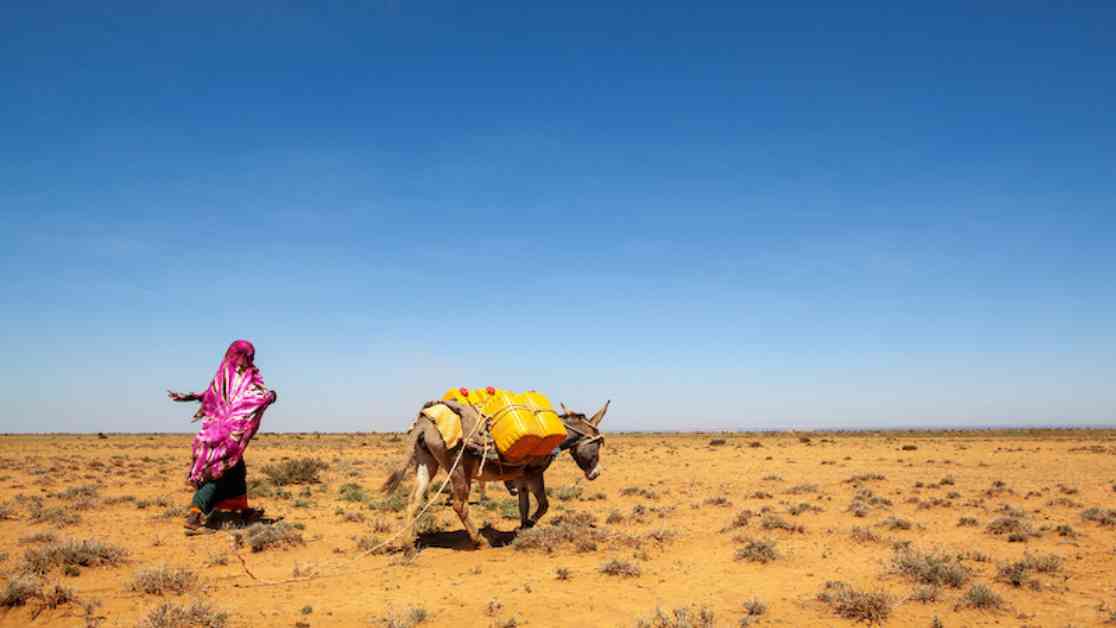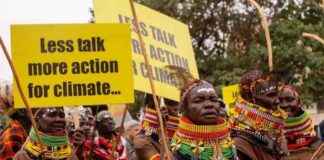A group of fragile states, including Chad, Iraq, Somalia, and Yemen, have banded together to address the urgent need for climate finance to combat the escalating impacts of climate change. These countries, often overlooked in global climate discussions, are calling for increased funding to help them absorb and respond to the growing climate shocks they face.
The newly formed network of fragile states recently convened in Abu Dhabi to strategize on how to elevate the intersection of climate, conflict, and humanitarian needs on the global climate agenda. Representatives from 13 countries participated in the meeting, with a shared goal of advocating for enhanced climate financing tailored to their unique circumstances.
The Urgent Need for Climate Financing
According to a report by think-tank ODI Global, more than half of the world’s most climate-vulnerable countries are grappling with armed conflict, violence, or high levels of humanitarian need. The combination of poor governance and conflict leaves these nations even more susceptible to the impacts of climate change, making it increasingly challenging for them to build resilience to future environmental challenges.
Unfortunately, funding for these fragile states falls significantly short of what is required, with a UN study revealing that extremely fragile states received only $2 per person in multilateral climate finance between 2014 and 2021. This stark contrast to the $162 per person received by more stable countries underscores a critical gap that needs to be addressed urgently.
The Call to Action for COP30
Looking ahead to COP30, the fragile states network has penned a letter to the president of the summit, André Aranha Corrêa do Lago, urging him to prioritize the needs of climate-vulnerable and conflict-affected countries. The alliance is calling for a thematic day on climate, relief, recovery, and peace, emphasizing the importance of aligning global development objectives with the urgent climate financing requirements of fragile nations.
In his vision for COP30, Brazilian diplomat Corrêa do Lago has underscored the necessity of removing barriers for developing countries to access climate finance and scaling funding to at least $1.3 trillion per year by 2035. This ambitious goal is crucial in addressing the pressing needs of fragile states and ensuring that they receive the support required to tackle climate change effectively.
The Growing Gap and Future Needs
Collectively, fragile countries are estimated to require $41.5 billion annually by 2030 to mitigate and adapt to climate change, a significant increase from the $11 billion they received in 2022. As climate impacts intensify, the need for resilience finance becomes even more urgent to help these nations anticipate, adapt to, and absorb environmental shocks.
One such country facing the consequences of climate change is Somalia, where political instability, ethnic tensions, and an Islamist insurgency have compounded the challenges brought on by severe droughts and flooding. The lack of funding for critical climate adaptation measures poses a grave risk to the country’s food security and livelihoods, highlighting the urgent need for increased climate finance.
In a positive development, the UN’s Green Climate Fund (GCF) has committed $100 million to Somalia under its first national programme, aimed at bolstering the country’s capacity to address climate challenges. This investment, though a significant step forward, represents just the beginning of what is needed to address Somalia’s extensive climate-related needs.
As the impacts of climate change continue to escalate, it becomes increasingly clear that fragile states require substantial support to build resilience and adapt to a changing climate. The international community must heed the call of these nations and take immediate action to bridge the funding gap and ensure a sustainable future for all.














